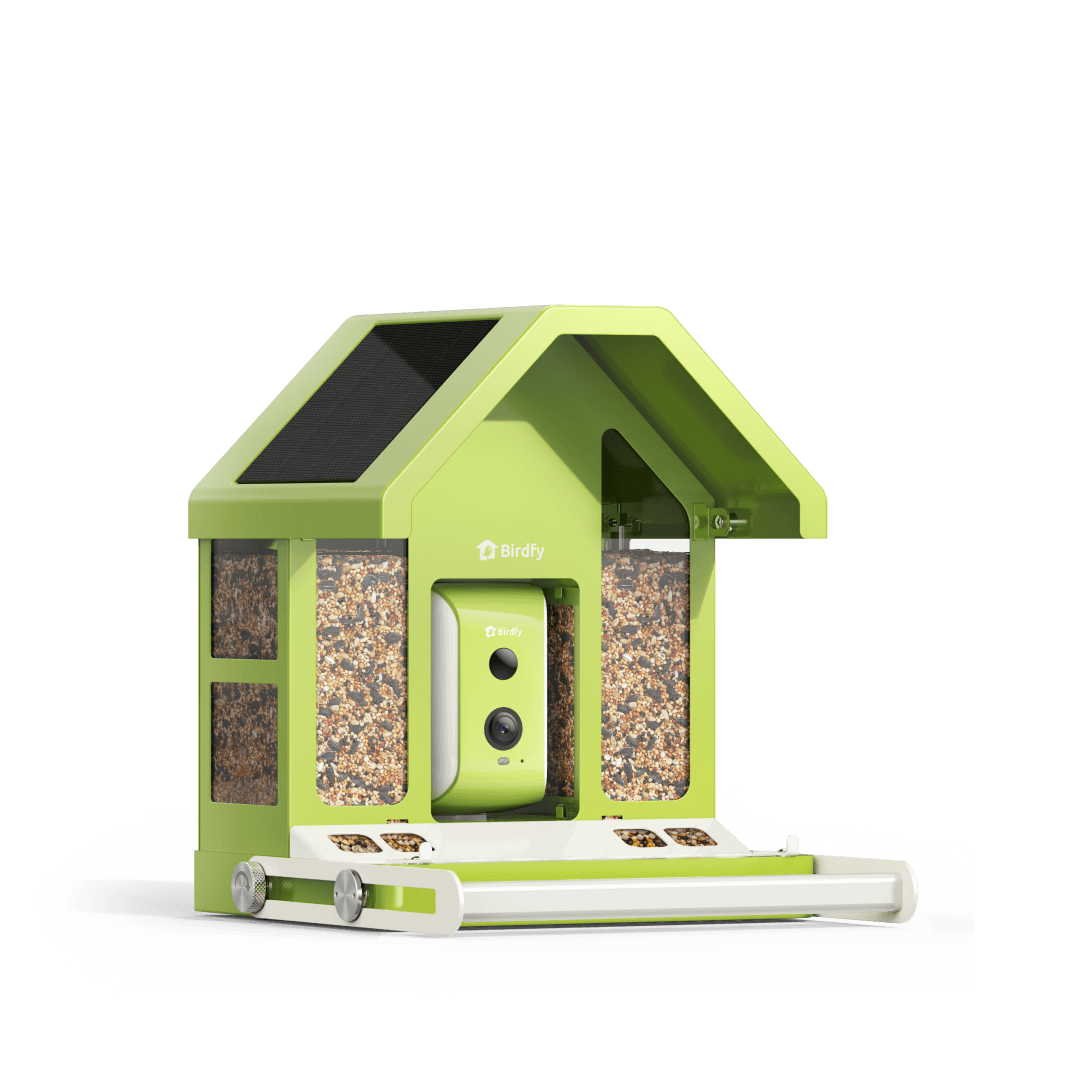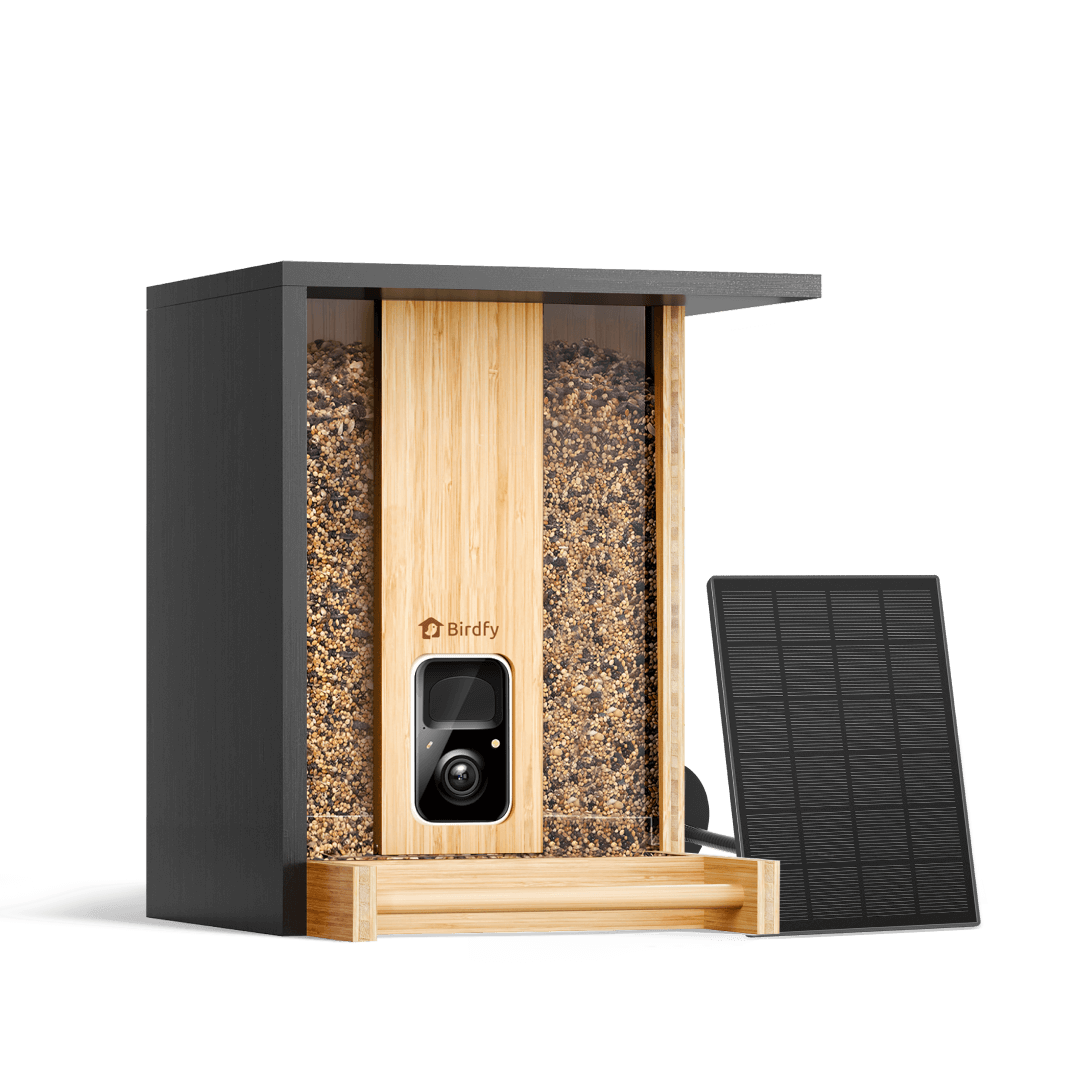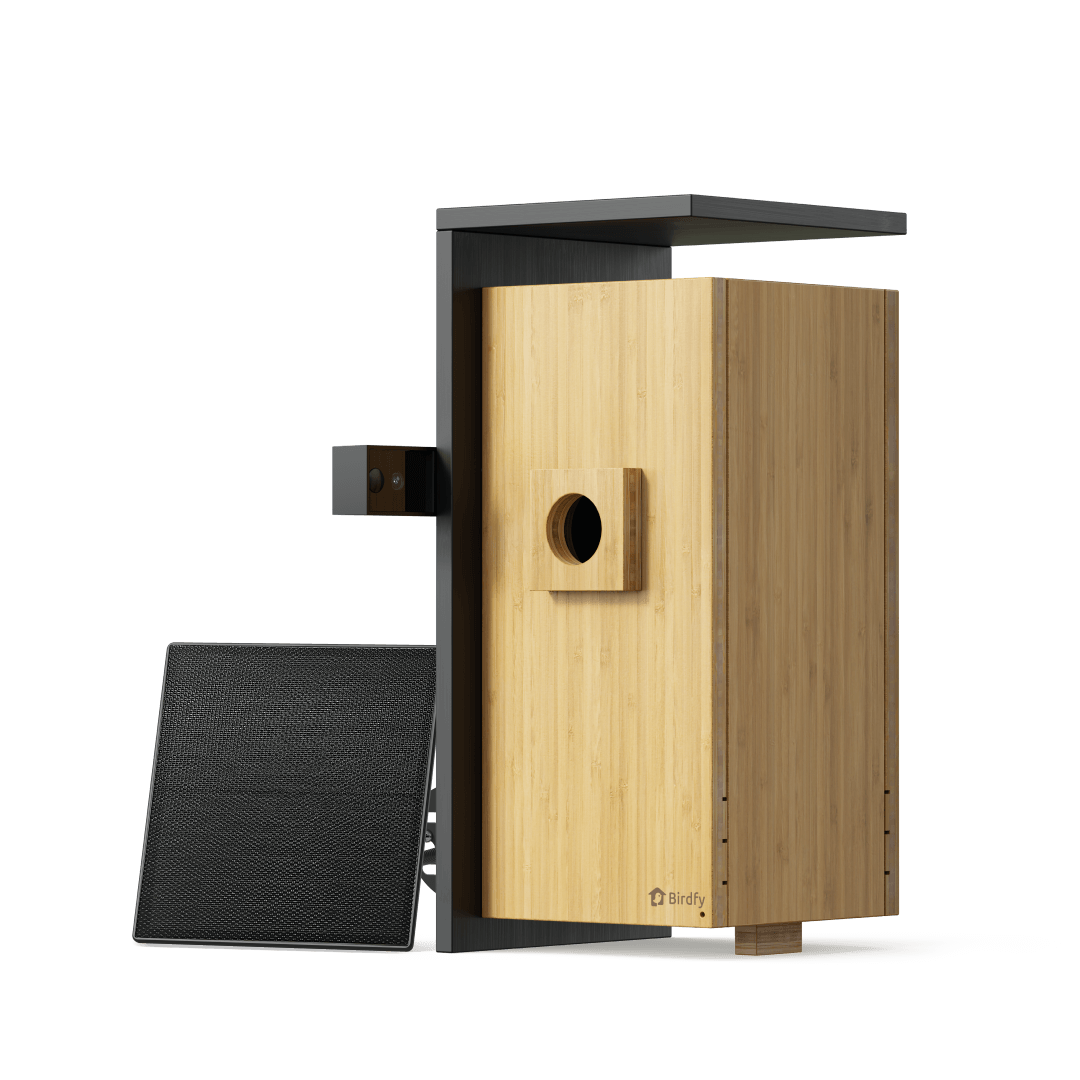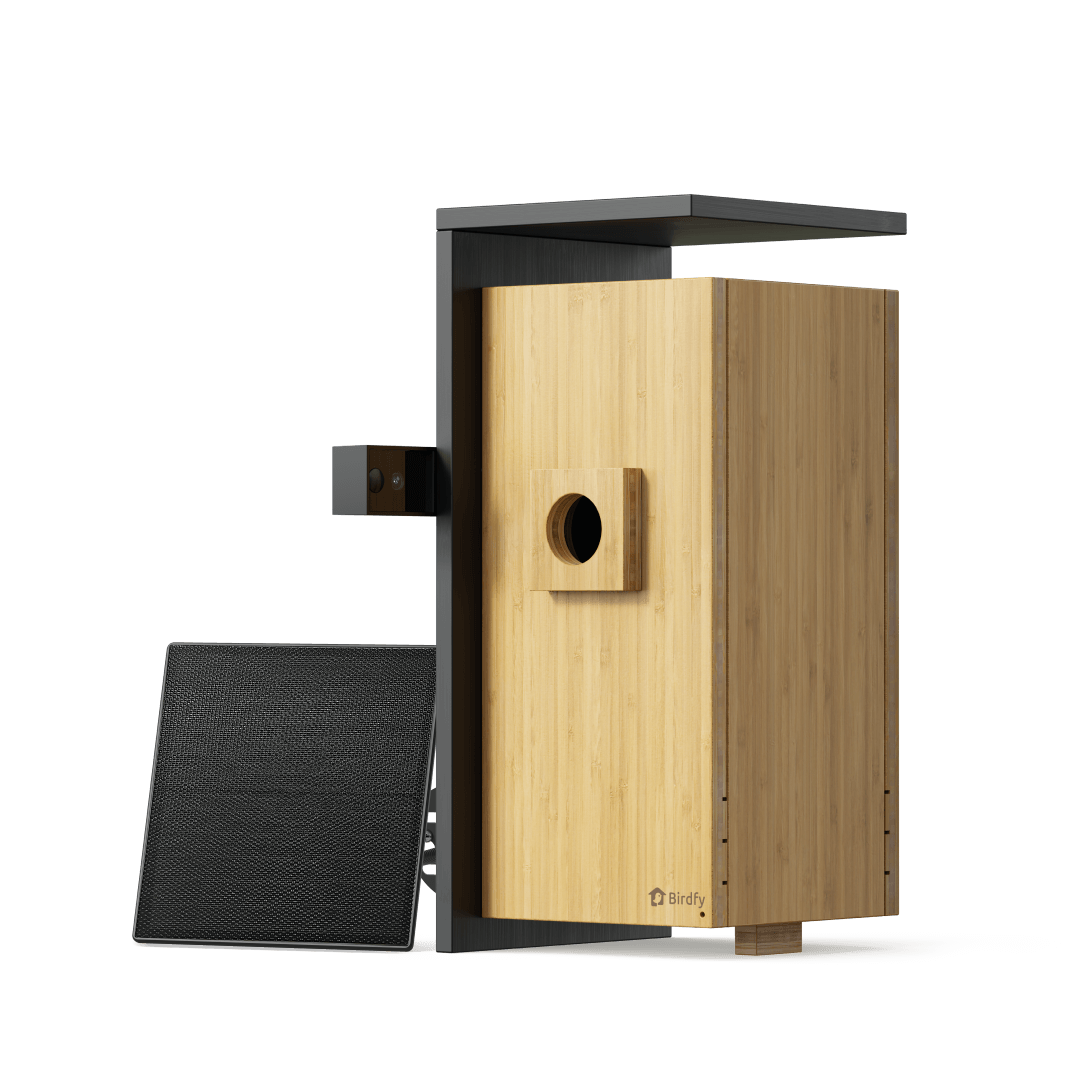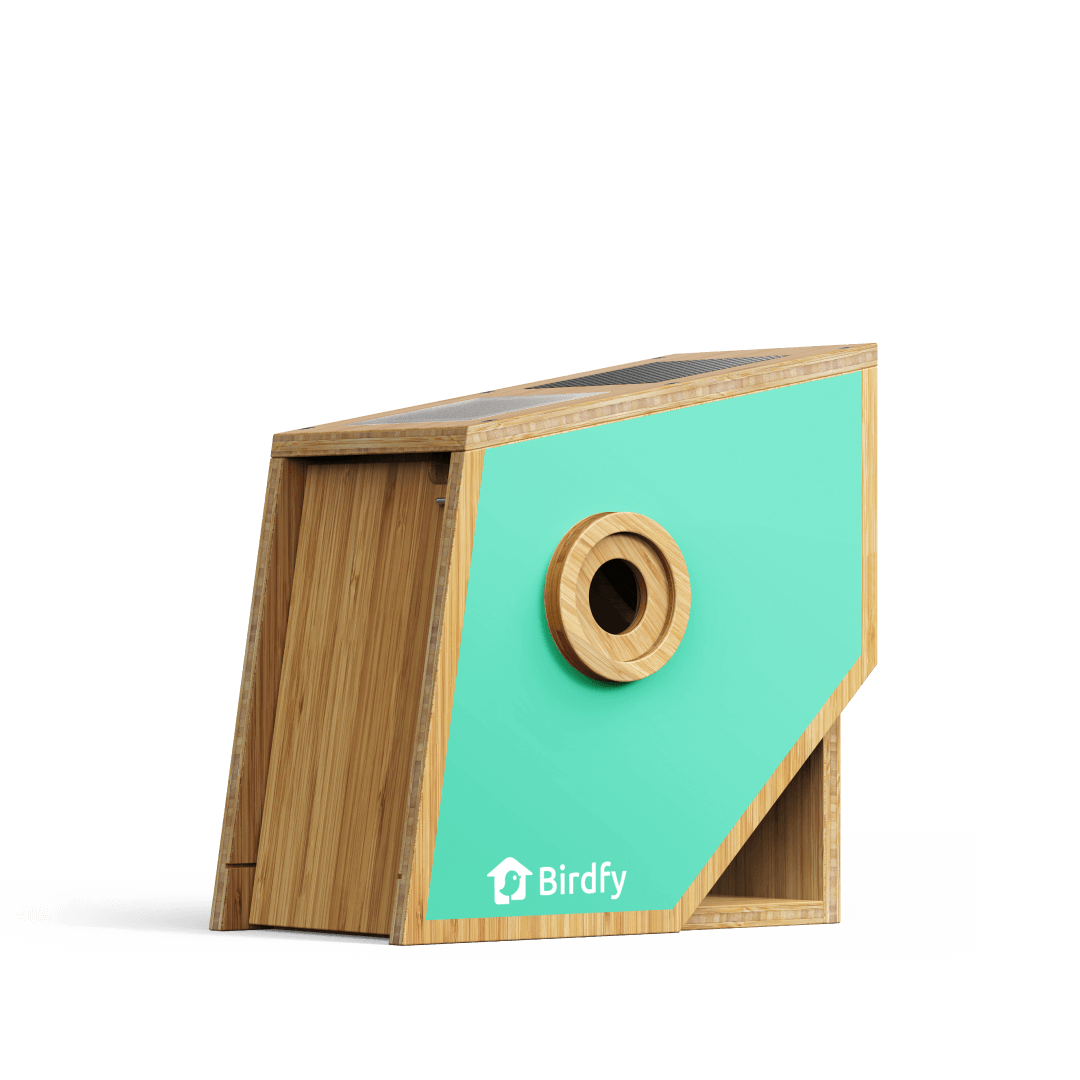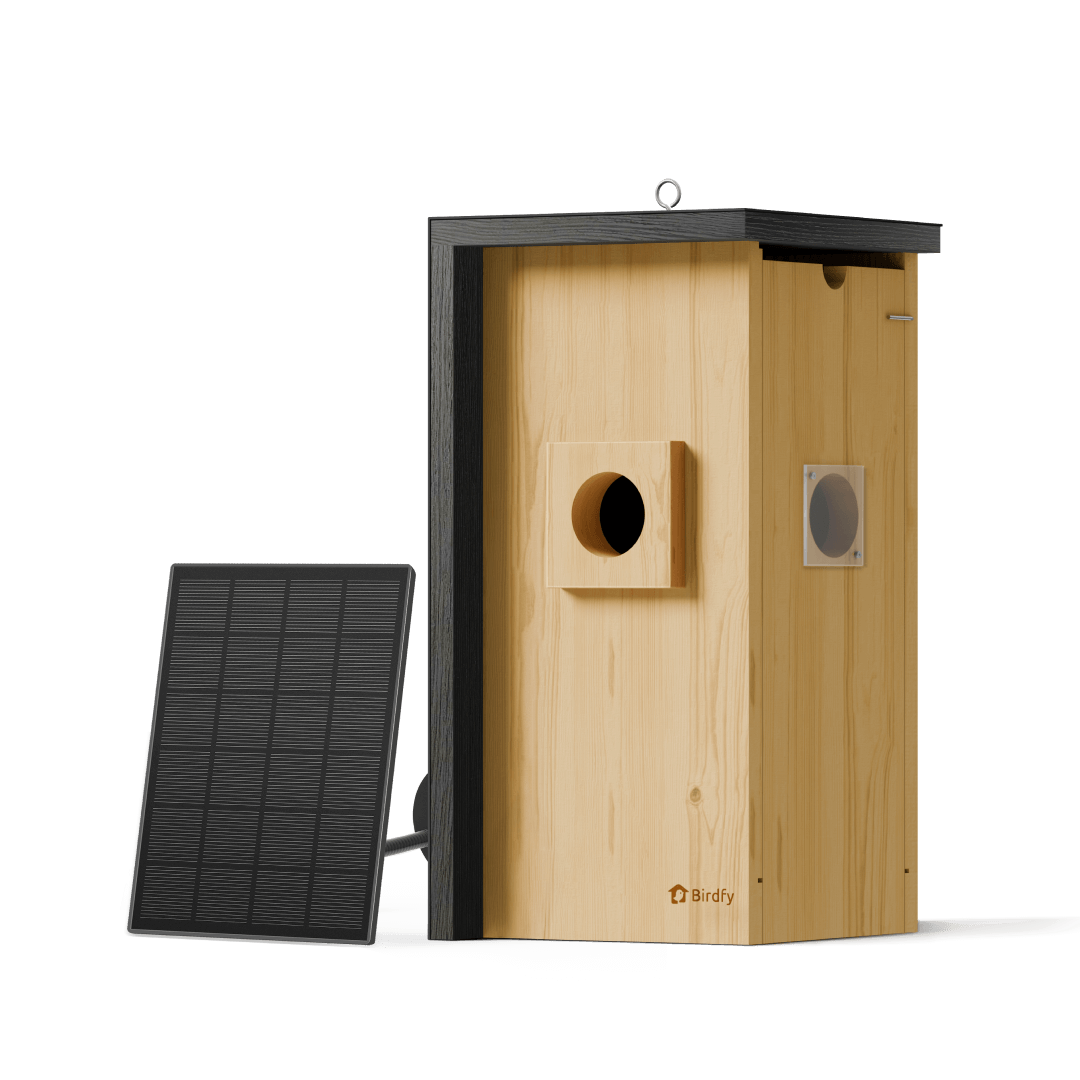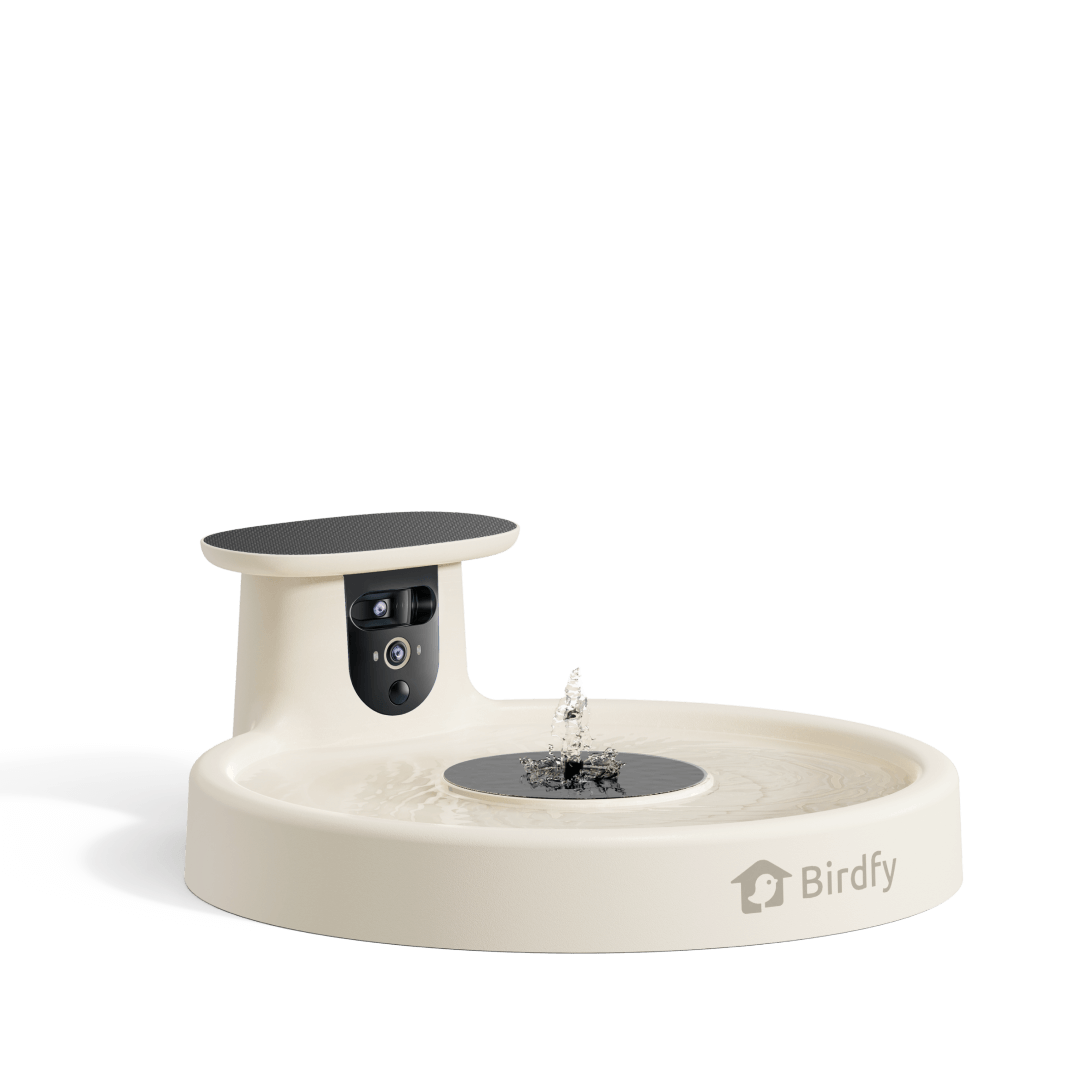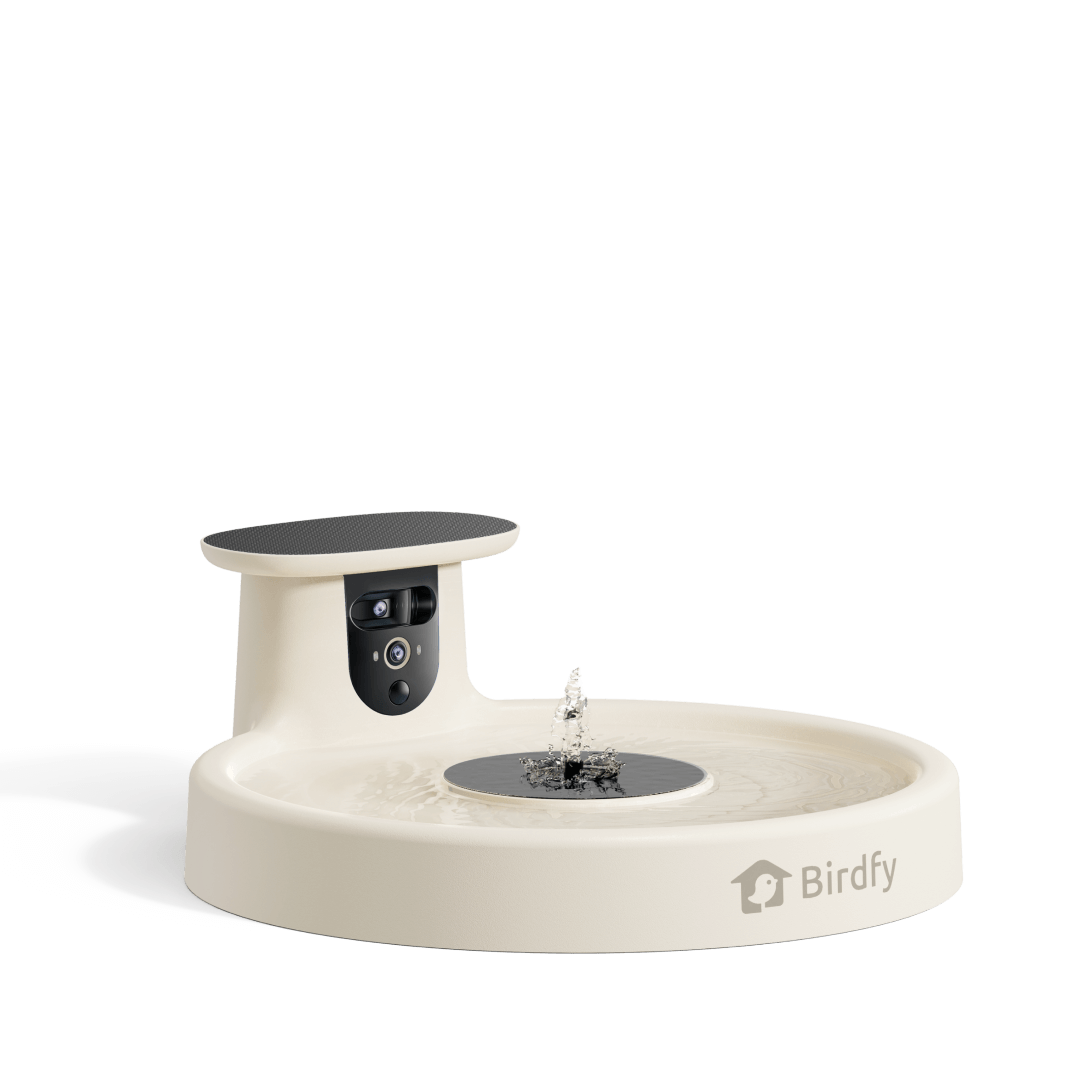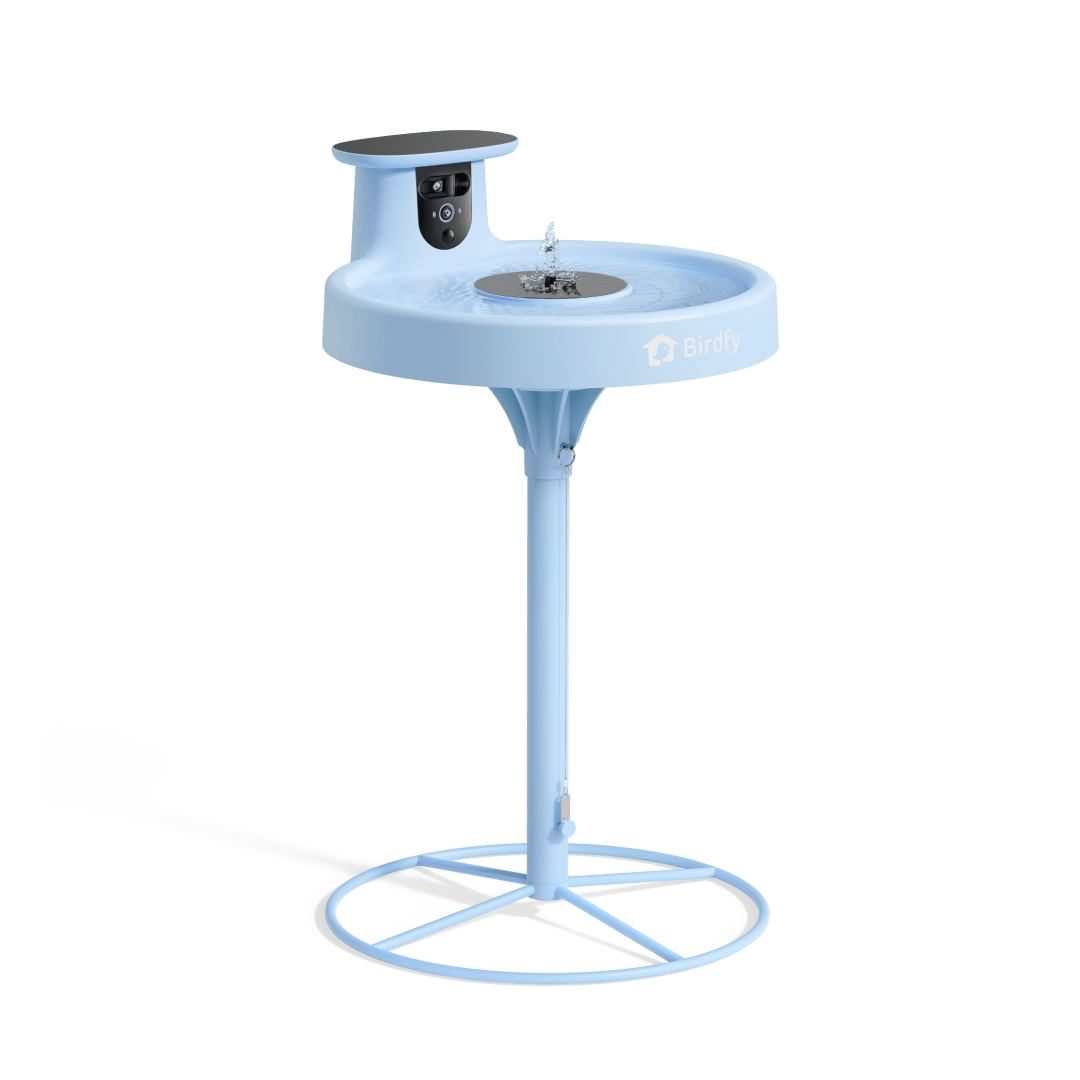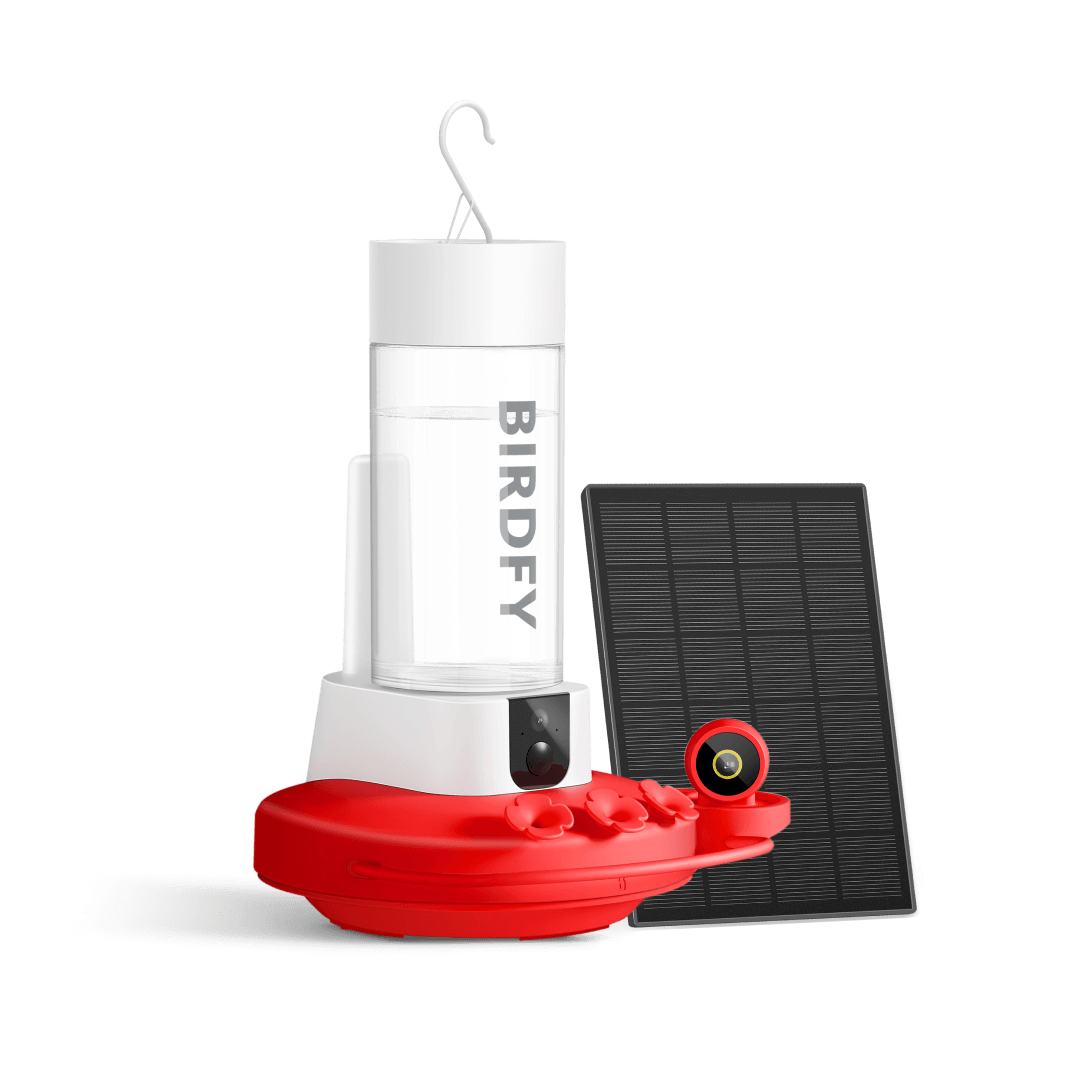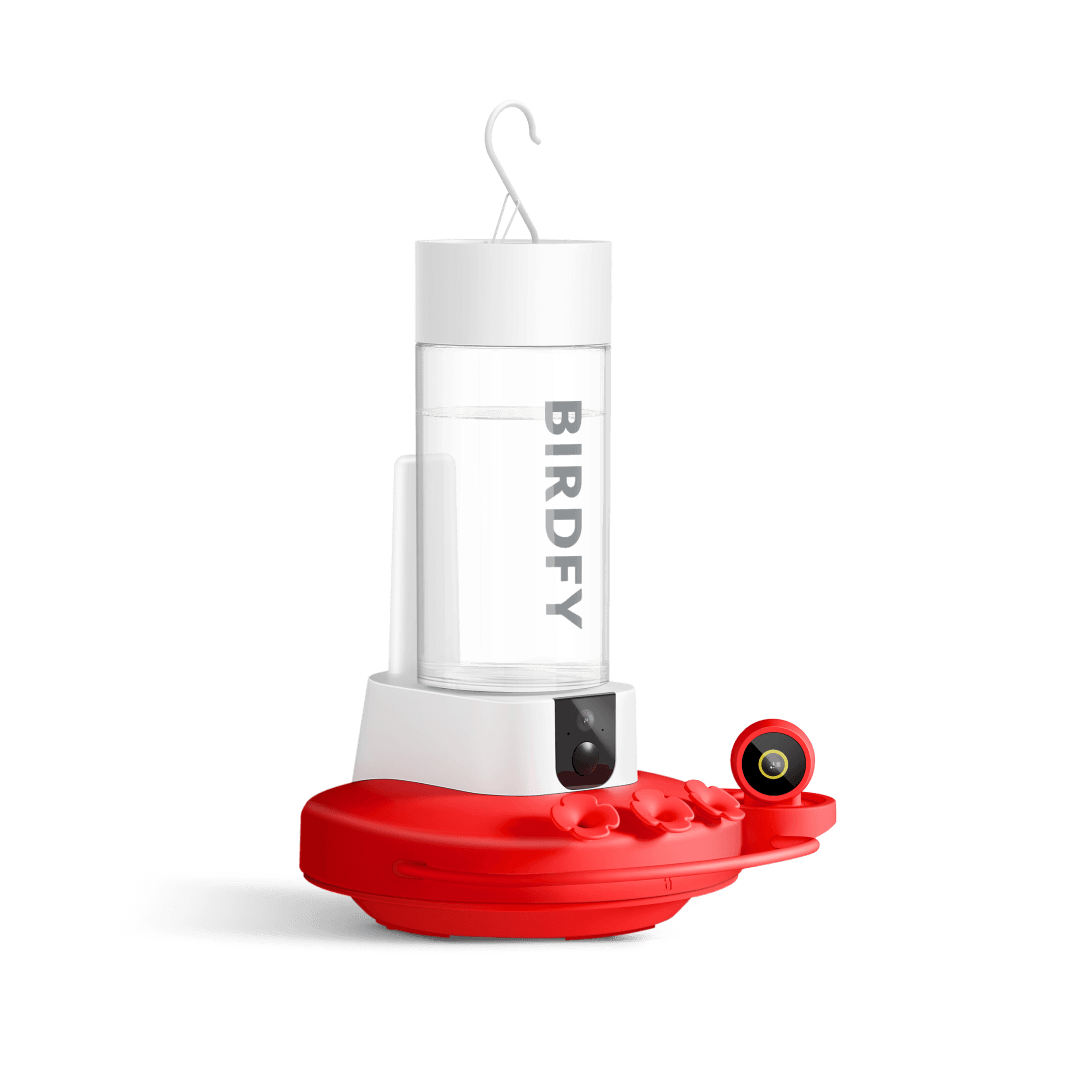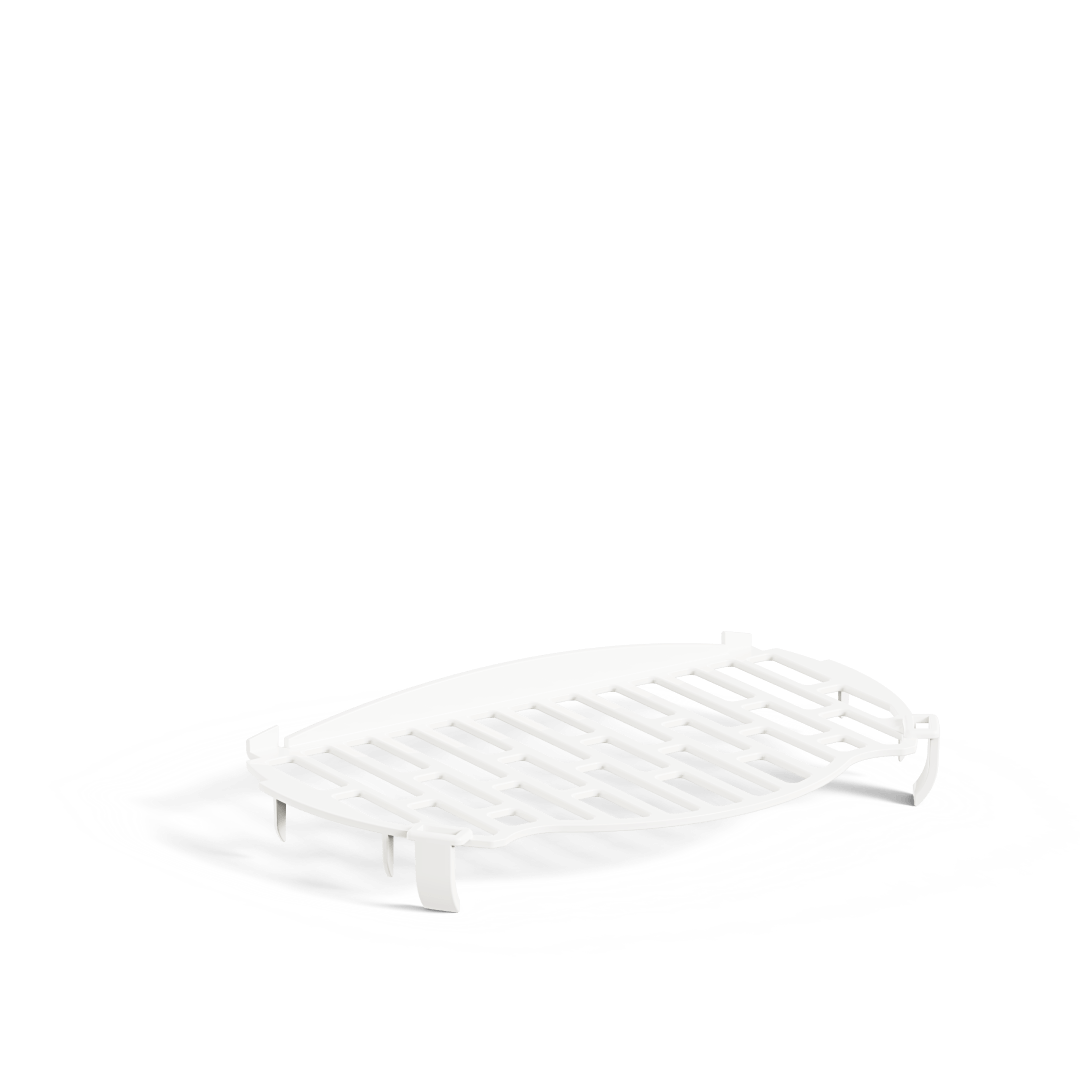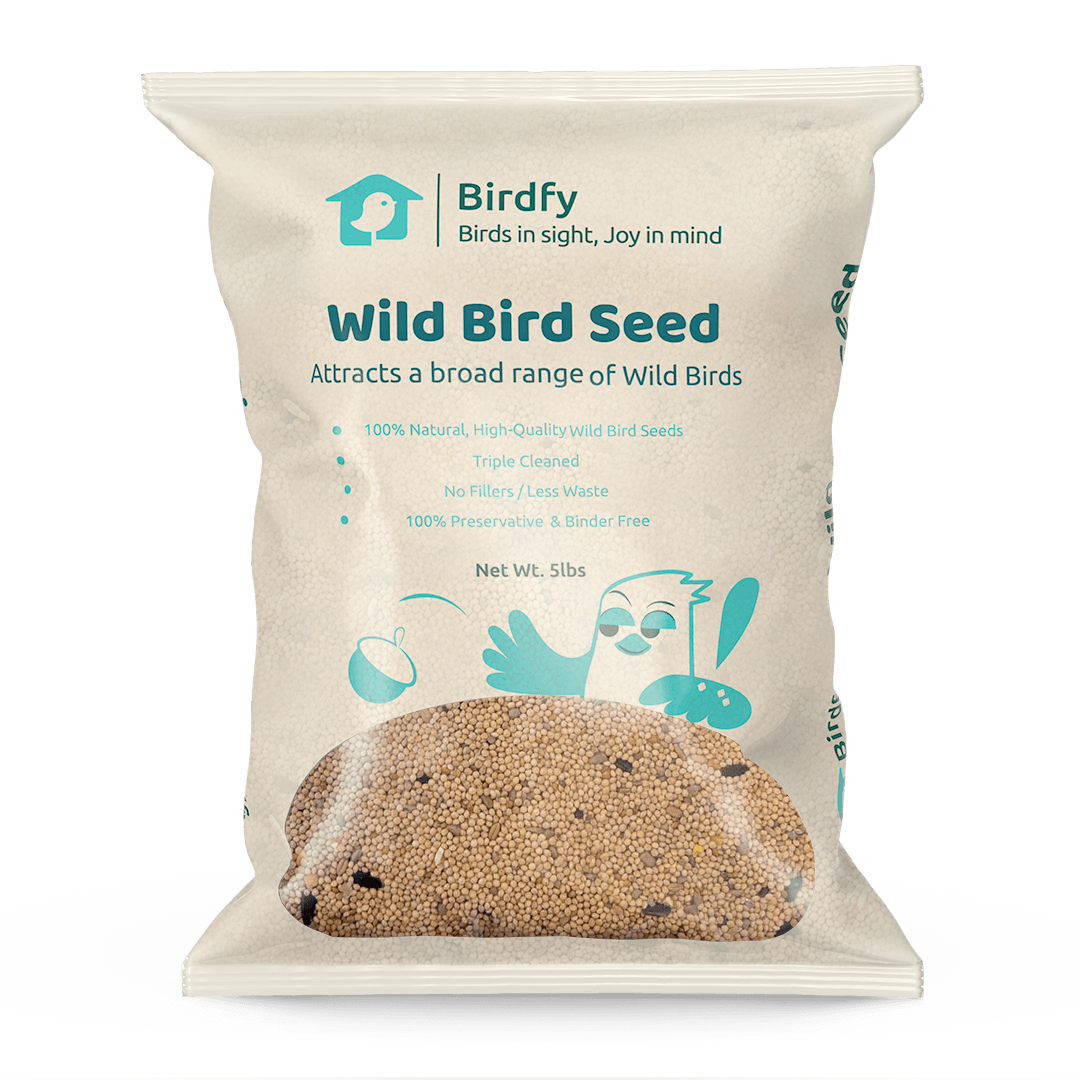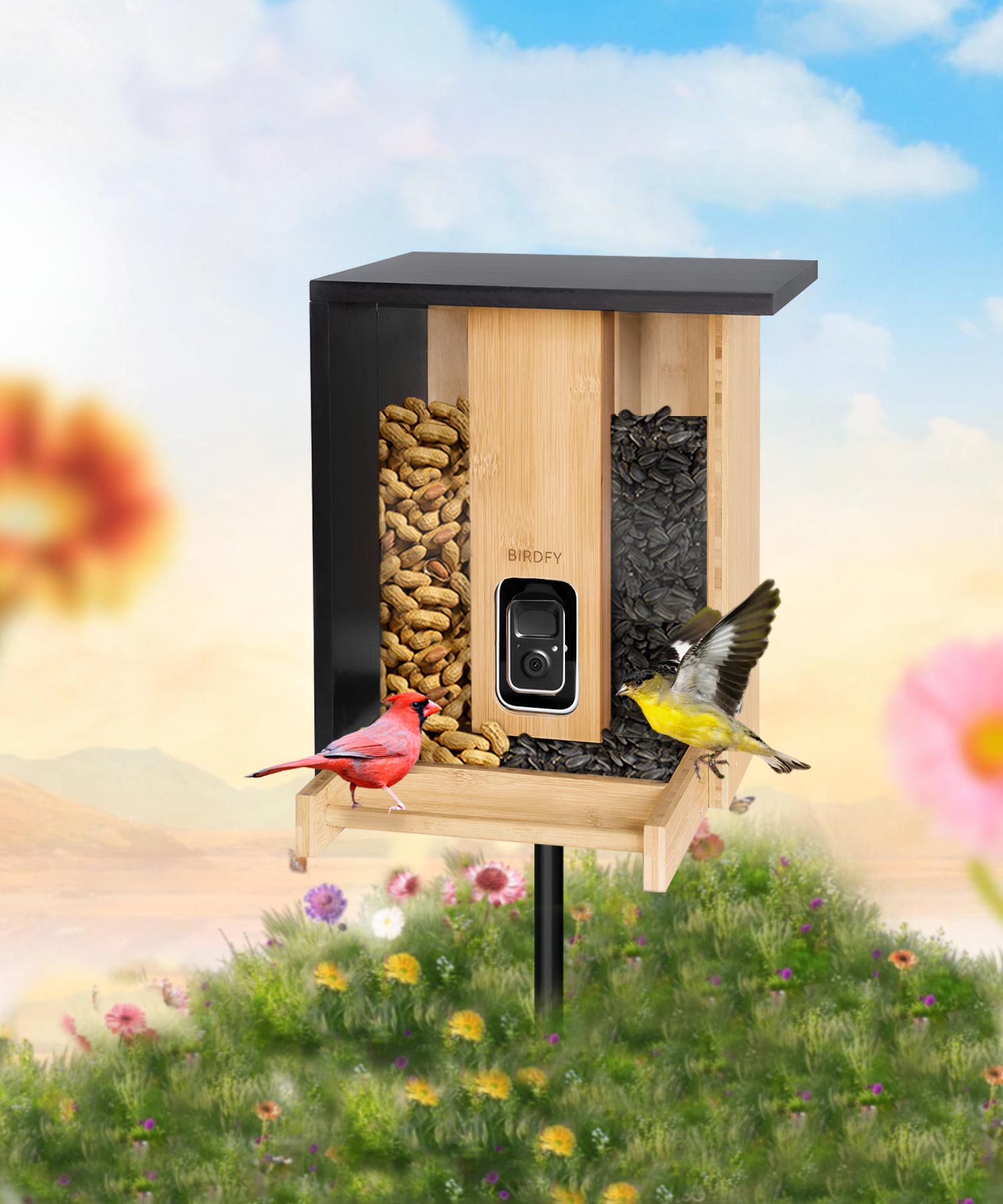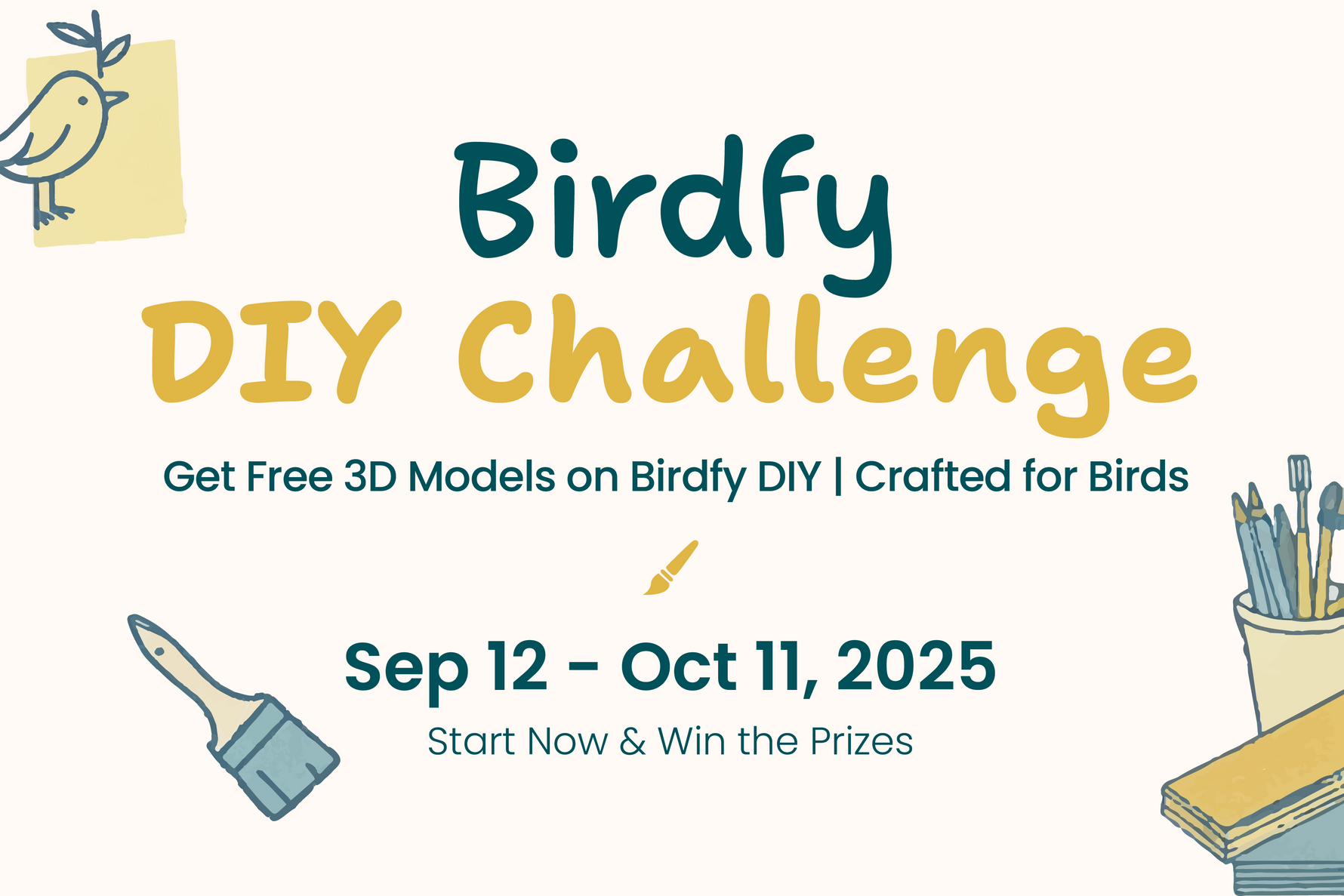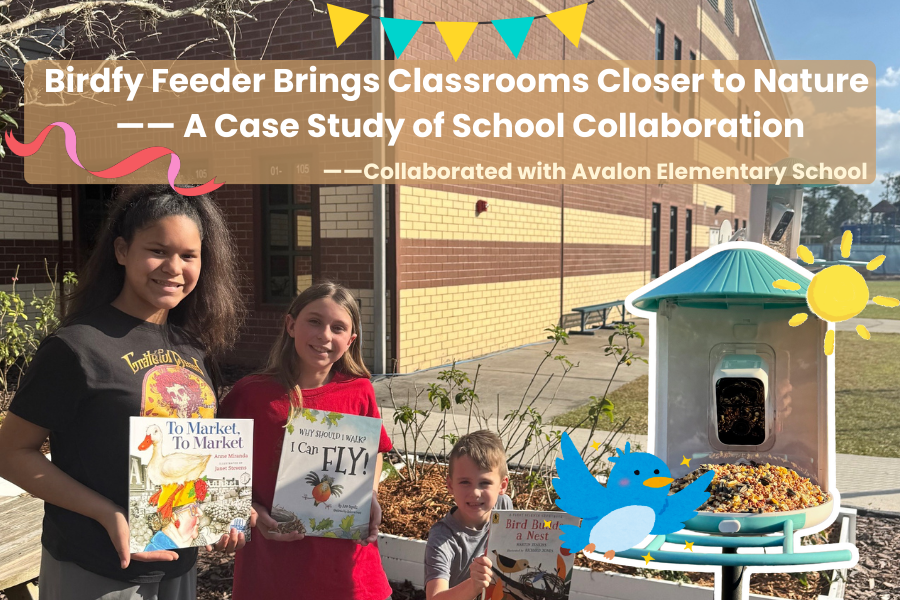In the vibrant tapestry of the avian world, where iridescent hummingbirds flash and tropical parrots blaze with color, there exists a timeless elegance in monochrome. Black and white birds possess a striking, graphic quality that commands attention. This high-contrast plumage is far from simple; it serves critical functions from camouflage and predation to social signaling. From the remote Antarctic to our own backyards, these birds exemplify adaptation and beauty. Let's explore twenty of the most fascinating black and white birds from across the globe.
20 Birds in Black and White
Here’s Birdfy’s roundup of 20 stunning black and white birds you’ll want to get to know. Some are dressed in classic two-tone plumage, while others surprise you with red chests or speckled wings. With clear photos and simple notes on each bird, you’ll be able to spot their traits more easily and sharpen your birdwatching skills along the way.
Magpie
Instantly recognizable, the Eurasian Magpie (Pica pica) is a corvid renowned for its intelligence. Its plumage appears black from a distance, but a closer look reveals iridescent shades of blue and green on its wings and tail, contrasting sharply with its white belly and shoulder patches.
Appearance: Black and white plumage with iridescent blue-green on wings and a long tail.
Habitat: Found in open countryside, farmlands, parks, and gardens.
Range: Common across Europe, Asia, and northwest Africa.
Size: About 44–46 cm (17–18 in) long, nearly half of it tail.
Wingspan: Ranges from 52–62 cm (20–24 in).
Feeding Habits: Omnivorous—eats insects, small animals, seeds, fruits, and carrion.
Life Span: Usually 3–5 years in the wild, sometimes longer.
Fun Facts: Magpies can recognize themselves in mirrors and feature in many folk tales.
African Penguin
Also known as the Jackass Penguin for its donkey-like bray, this species (Spheniscus demersu) is found on the southern coast of Africa. Its black back and white front provide countershading camouflage in the water, hiding it from predators above and below.
Appearance: Black back and white belly with a distinct black chest band and pink patches above the eyes.
Habitat: Coastal islands and rocky shores of southern Africa.
Range: Found along the coasts of South Africa and Namibia.
Size: About 60–70 cm (24–28 in) tall.
Wingspan: Flipper length is around 50–60 cm (20–24 in), adapted for swimming.
Feeding Habits: Diet mainly consists of fish such as sardines and anchovies, along with squid.
Life Span: Typically 10–15 years in the wild, longer in captivity.
Fun Facts: Known as the "jackass penguin" because of its loud braying call, similar to a donkey.
Downy Woodpecker
The Downy Woodpecker is the smallest woodpecker in North America (Dryobates pubescens). It is a common visitor to feeders. It boasts a classic woodpecker pattern: a black back with white stripes, a white belly, and a distinctive white patch on its back. Males sport a small red patch on the head.
Appearance: Small and delicate, with black-and-white checkered wings, a white belly, and a short bill. Males often show a tiny red patch on the back of the head.
Habitat: Prefers woodlands, orchards, and backyard feeders, often clinging to tree trunks and branches.
Range: Widespread across North America, from Alaska to Florida.
Size: About 14–17 cm (5.5–6.7 in) in length.
Wingspan: Reaches 25–30 cm (10–12 in).
Feeding Habits: Feeds on insects hidden in bark, as well as berries and seeds, and readily visits suet feeders.
Life Span: Typically 2–4 years in the wild, with some reaching up to 10 years.
Fun Facts: Despite being the smallest woodpecker in North America, its drumming is surprisingly loud for its size.
Black-and-White Warbler
This North American songbird (Mniotilta varia) behaves more like a nuthatch than a typical warbler. It creeps along tree trunks and branches, using its slightly decurved bill to probe for insects. Its striped plumage resembles tree bark, making it expertly camouflaged.
Appearance: Striking black-and-white streaked pattern across its body, with a thin, slightly curved bill perfect for gleaning insects from tree bark.
Habitat: Found in deciduous and mixed forests, often creeping along trunks and branches like a tiny nuthatch.
Range: Breeds in North America and migrates to Central America and the Caribbean for winter.
Size: About 12–13 cm (4.7–5.1 in) long.
Wingspan: Around 19–22 cm (7.5–8.7 in).
Feeding Habits: Insects and spiders, foraged from bark and leaves; rarely eats seeds.
Life Span: Typically 2–4 years in the wild.
Fun Facts: Its black-and-white stripes allow it to blend perfectly with tree bark, making it a stealthy insect hunter.
Australian Magpie
Unrelated to the Eurasian Magpie, the Australian Magpie (Gymnorhina tibicen) is a larger, stout-bodied songbird native to Australia and southern New Guinea. Adults are mostly black with a variable amount of white on the nape, back, and tail coverts, and possess a powerful, melodious warble.
Appearance: Bold black-and-white plumage with a glossy finish, long legs, and a strong, slightly curved beak.
Habitat: Grasslands, open woodlands, and suburban areas; often seen perched on fences or lawns.
Range: Widespread across Australia and southern New Guinea.
Size: About 37–43 cm (14.5–17 in) long.
Wingspan: Roughly 65–85 cm (25–33 in).
Feeding Habits: Omnivorous—feeds on insects, small reptiles, seeds, and occasionally carrion.
Life Span: Often 25 years or more in the wild.
Fun Facts: Known for their complex songs and territorial swooping during breeding season.
Razorbill
A striking seabird of the North Atlantic (Alca torda), the Razorbill sports a deep black back and head with a crisp white underside. Its thick, blunt beak, crossed by a white line, is its namesake and is perfectly adapted for catching fish.
Appearance: Sleek black upperparts with crisp white underparts, thick black bill with a white line across it, giving a “razor-like” appearance.
Habitat: Coastal cliffs and islands, especially during breeding season.
Range: North Atlantic coasts, from eastern Canada to northern Europe.
Size: About 38–43 cm (15–17 in) long.
Wingspan: Around 63–69 cm (25–27 in).
Feeding Habits: Primarily small fish like sand eels and sprats, caught by diving underwater.
Life Span: Up to 25 years in the wild.
Fun Facts: Razorbills are excellent divers, using their wings to “fly” underwater after fish.
Skimmer
Unique among birds, the Black Skimmer (Rynchops niger) has an extraordinary feeding technique. It flies low over water with its elongated lower mandible slicing the surface, snapping its upper bill shut when it contacts a fish. Its black back and white body are a common sight on coasts in the Americas.
Appearance: Striking black upperparts with white underparts, long wings, and a unique bill where the lower mandible is longer than the upper.
Habitat: Sandy beaches, riverbanks, and coastal lagoons.
Range: Found in Africa, the Americas, and parts of Asia depending on species.
Size: About 40–45 cm (16–18 in) long.
Wingspan: Around 110–120 cm (43–47 in).
Feeding Habits: Skims the water surface with its lower bill to catch small fish and crustaceans.
Life Span: Typically 10–15 years in the wild.
Fun Facts: Its specialized bill makes it one of the few birds that “fish while flying” in a gliding motion just above water.
Oystercatcher
With their loud piping calls, long, bright orange-red bills, and pink legs, these shorebirds are unmistakable. The American Oystercatcher (Haematopus palliatus) has a black head and brown back with a white belly, while other species like the Eurasian Oystercatcher can be completely black.
Appearance: Bold black-and-white plumage with a long, bright orange-red bill and pinkish legs.
Habitat: Coastal beaches, mudflats, and estuaries.
Range: Found across Europe, parts of Asia, and northern Africa.
Size: About 40–45 cm (16–18 in) long.
Wingspan: Roughly 80–86 cm (31–34 in).
Feeding Habits: Feeds on shellfish, mollusks, and marine invertebrates, using its strong bill to pry them open.
Life Span: Typically 10–15 years in the wild.
Fun Facts: Oystercatchers can break open oysters and clams with surprising precision, earning their name.
Pied Avocet
An elegant wader (Recurvirostra avosetta) found in Europe and Asia, the Avocet is pure white with bold black markings on its wings and back. Its most distinctive feature is its long, slender, upcurved bill, which it sweeps side to side in shallow water to catch small invertebrates.
Appearance: Elegant black-and-white plumage with a long, thin, upturned bill and bluish-grey legs.
Habitat: Shallow wetlands, salt pans, and coastal lagoons.
Range: Western Europe, Central Asia, and parts of Africa.
Size: About 40–45 cm (16–18 in) long.
Wingspan: Around 80–90 cm (31–35 in).
Feeding Habits: Sweeps its curved bill through shallow water to catch insects, crustaceans, and small aquatic animals.
Life Span: Typically 10–12 years in the wild.
Fun Facts: The Pied Avocet’s graceful foraging motion makes it look like it’s “dancing” on the water.
Pied Crow
Widespread across sub-Saharan Africa, this adaptable corvid (Corvus albus) is identified by its broad white band across its breast, contrasting with its otherwise black plumage. It thrives in both urban and rural environments.
Appearance: Mostly glossy black with a striking white chest and neck band, giving it a bold contrast.
Habitat: Open savannas, farmlands, and urban areas across Africa.
Range: Widely distributed in sub-Saharan Africa.
Size: About 46–50 cm (18–20 in) long.
Wingspan: Approximately 85–100 cm (33–39 in).
Feeding Habits: Omnivorous—feeds on insects, small animals, fruits, and human leftovers.
Life Span: Typically 15–20 years in the wild.
Fun Facts: Pied Crows are highly intelligent and can mimic sounds, sometimes even human speech.
Common Loon
The iconic bird of northern lakes, the Common Loon (Gavia immer) is famous for its eerie, haunting calls. In breeding plumage, it has a checkered black-and-white back, a black head with a iridescent sheen, and a stark white collar and underparts.
Appearance: Black head and neck with white checkered back; striking red eyes make it easy to spot.
Habitat: Freshwater lakes and large ponds during breeding season; coastal waters in winter.
Range: North America, mainly Canada and northern United States.
Size: About 66–91 cm (26–36 in) long.
Wingspan: 127–147 cm (50–58 in).
Feeding Habits: Excellent divers, feeding on fish and aquatic invertebrates.
Life Span: Often 10–20 years in the wild.
Fun Facts: Loons are known for their eerie, haunting calls that echo across northern lakes.
Killdeer
Although often considered a brown bird, the Killdeer (Charadrius vociferus) earns its place on this list for its bold double black breast bands set against a white belly and neck. This plover is known for its dramatic "broken-wing" act to lure predators from its nest.
Appearance: Brown back, white belly, and two distinctive black breast bands; bright orange rump flashes in flight.
Habitat: Open fields, grasslands, and shorelines, often near water.
Range: Widespread across North and Central America.
Size: About 22–28 cm (8.5–11 in) long.
Wingspan: Approximately 46–55 cm (18–22 in).
Feeding Habits: Feeds on insects, worms, and small invertebrates, often running on the ground to catch prey.
Life Span: Typically 5–10 years in the wild.
Fun Facts: Famous for the “broken-wing” act used to lure predators away from its nest.
White Wagtail
A slender, graceful bird (Motacilla alba) common across Europe, Asia, and parts of Africa. It has a grey back, a white face, and a black cap and bib. It is constantly in motion, pumping its long tail up and down as it forages for insects.
Appearance: Sleek black, white, and gray plumage with a long tail that constantly wags up and down.
Habitat: Open fields, riverbanks, and urban areas.
Range: Europe, Asia, and parts of North Africa.
Size: About 16–19 cm (6–7.5 in) long.
Wingspan: Approximately 25–30 cm (10–12 in).
Feeding Habits: Insects and small invertebrates, often caught on the ground.
Life Span: Usually 3–5 years in the wild.
Fun Facts: Known for its cheerful, bobbing tail and agile flight patterns.
Pied Kingfisher
This black-and-white kingfisher (Ceryle rudis) found in Asia and Africa is often seen hovering dramatically over water before diving headfirst to catch fish. The male has a double black band across its breast, while the female has a single, often broken, band.
Appearance: Striking black-and-white plumage with a distinctive crest and sharp, pointed bill.
Habitat: Freshwater lakes, rivers, and estuaries.
Range: Sub-Saharan Africa and southern Asia.
Size: About 25–30 cm (10–12 in) long.
Wingspan: Around 40–45 cm (16–18 in).
Feeding Habits: Hunts fish by hovering and diving into water.
Life Span: Typically 6–10 years in the wild.
Fun Facts: Often hovers in mid-air like a tiny helicopter before plunging for fish.
Hawaiian Goose (Nēnē)
The state bird of Hawaii, the Nēnē (Branta sandvicensis) is a striking goose with a black face, cap, and rear neck, set against soft buff-white cheeks. Its body is patterned with grey, black, and white bars. It is one of the world's rarest geese.
Appearance: Gray-brown body with darker head and face, black legs, and white facial markings.
Habitat: Volcanic slopes, grasslands, and coastal areas of Hawaii.
Range: Endemic to Hawaii.
Size: About 41–45 cm (16–18 in) long.
Wingspan: Approximately 90–112 cm (35–44 in).
Feeding Habits: Grazes on grasses, berries, and seeds.
Life Span: Can live 10–20 years in the wild.
Fun Facts: Nēnē is Hawaii’s state bird and adapted to walking on lava fields with its strong, padded feet.
Loggerhead Shrike
A small predatory songbird of North America (Lanius ludovicianus), the "butcherbird" has a grey back, white underparts, and black wings with a single white patch. Most notably, it has a black mask across its eyes, giving it a bandit-like appearance.
Appearance: Gray upperparts, white underparts, black mask across eyes, and hooked bill.
Habitat: Open fields, savannas, and scrublands.
Range: North America, from southern Canada to the United States and Mexico.
Size: About 22–26 cm (8.5–10 in) long.
Wingspan: Around 30–34 cm (12–13 in).
Feeding Habits: Hunts insects, small birds, and rodents; sometimes impales prey on thorns.
Life Span: Typically 5–7 years in the wild.
Fun Facts: Known as the “butcher bird” because it stores food by skewering it on thorns or barbed wire.
Zebra Finch
A quintessential Australian finch (Taeniopygia guttata), the male is a busy pattern of black and white. He has a black-and-white barred tail, a black tear-drop mark below the eye, a chestnut cheek patch, and a fine black-and-white "zebra" pattern on its throat and breast.
Appearance: Gray body, white belly, black-and-white striped tail, and bright orange beak; males have red cheek patches.
Habitat: Grasslands, open woodlands, and human-influenced areas in Australia.
Range: Native to Australia and introduced to parts of Indonesia.
Size: About 10–12 cm (4–4.7 in) long.
Wingspan: Approximately 15–20 cm (6–8 in).
Feeding Habits: Seeds, grains, and small insects.
Life Span: Usually 5–9 years in the wild.
Fun Facts: Popular as pets due to their cheerful chirping and social behavior.
Great Frigatebird
A magnificent seabird of tropical oceans, the male Great Frigatebird (Fregata minor) is entirely black with an iridescent green sheen. During the breeding season, he inflates a huge, bright red throat pouch to attract mates. Females, however, are black but have a white breast and throat.
Appearance: Black plumage with a long, forked tail; males have striking red throat pouch.
Habitat: Tropical oceans, islands, and coastal areas.
Range: Widely distributed across the Pacific and Atlantic Oceans.
Size: About 89–114 cm (35–45 in) long.
Wingspan: Impressive 205–230 cm (81–91 in).
Feeding Habits: Snatches fish from the ocean surface or steals from other seabirds.
Life Span: Often 15–20 years in the wild.
Fun Facts: Can soar for hours without flapping and is famous for kleptoparasitic feeding.
Hammerkop
A unique wading bird of sub-Saharan Africa (Scopus umbretta), the Hammerkop is uniformly brown from a distance but reveals a subtly barred black-and-white back and tail in good light. It is named for its unique hammer-shaped head and builds enormous, conspicuous stick nests.
Appearance: Medium-sized brown bird with a unique hammer-shaped head and crest.
Habitat: Wetlands, rivers, and lakes across sub-Saharan Africa and Madagascar.
Range: Africa, Madagascar, and parts of Arabia.
Size: About 50–56 cm (20–22 in) long.
Wingspan: Around 95–105 cm (37–41 in).
Feeding Habits: Feeds on fish, amphibians, and insects.
Life Span: Typically 10–15 years in the wild.
Fun Facts: Builds enormous, elaborate nests that can last for decades.
Pied Butcherbird
Another Australian songbird renowned for its beautiful, complex vocalizations (Cracticus nigrogularis). It is mostly white with a solid black head, black and white wings, and a black tail. Like its relative the shrike, it impales prey on thorns or branches.
Appearance: Striking black-and-white plumage with a black head, white collar, and sharp, hooked bill.
Habitat: Woodlands, open forests, and farmlands in Australia.
Range: Eastern and northern Australia.
Size: About 33–38 cm (13–15 in) long.
Wingspan: Approximately 56–63 cm (22–25 in).
Feeding Habits: Hunts insects, small vertebrates, and occasionally takes eggs or nestlings.
Life Span: Usually 12–15 years in the wild.
Fun Facts: Known for beautiful, flute-like songs, often heard at dawn and dusk.
Bring Black and White Birds Closer to Your Backyard
Among the 20 black-and-white birds mentioned above, some of the smaller ones might even appear in your backyard. If you’d like to attract these feathered friends, the right setup is essential. A quality bird feeder, bird bath, or even a cozy birdhouse can transform your yard into a welcoming haven for birds.
The Birdfy Feeder 1, as the first-generation smart bird feeder, is beloved by bird enthusiasts worldwide and praised by major media outlets. Its AI-powered camera captures every feather detail and can accurately recognize over 6,000 bird species. You’ll receive instant notifications on your phone whenever a bird visits, so you never miss a delightful moment. With its waterproof, windproof, and moisture-resistant design, it’s ready to stand by all year round.
Birdfy Feeder - AI-Powered Smart Bird Feeder with Camera
Loved by over 600k users, the most iconic smart bird feeder ever.
Shop Now
Pair it with a Birdfy bird bath or a birdhouse to create the perfect sanctuary, making your feathered visitors want to return again and again.
Conclusion
The prevalence of black and white coloration is a masterclass in evolution. For penguins and auks, it's countershading for oceanic survival. For woodpeckers and the Black-and-White Warbler, it's cryptic camouflage against tree bark. For birds like the magpie and Australian Magpie, the bold pattern may play a role in social recognition and mate selection. This monochromatic scheme cuts a sharp figure against any background, ensuring these birds are not only survivors but also some of the most memorable and elegant creatures in the natural world.











